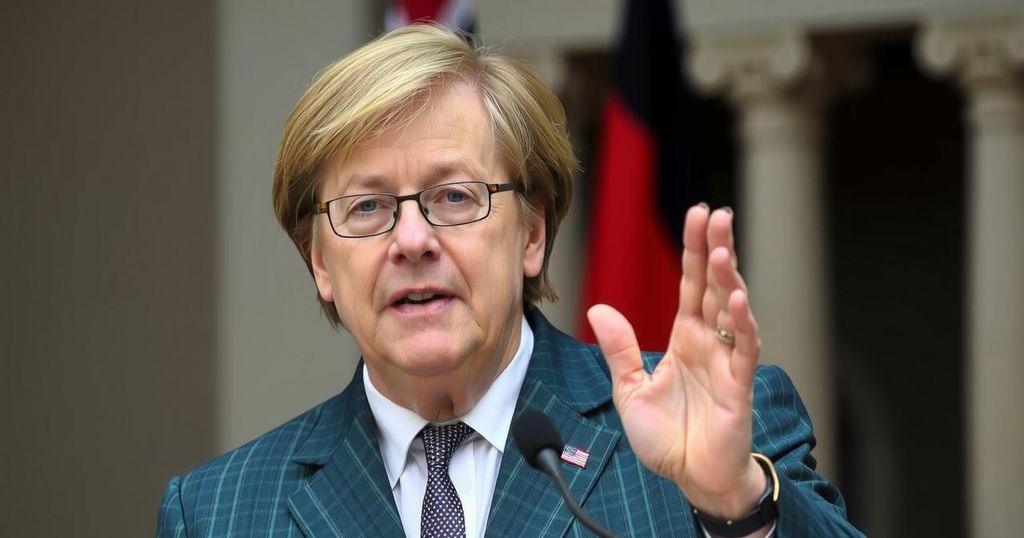Germany’s President Calls New Elections Amid Political Turmoil

German President Frank-Walter Steinmeier has dissolved Parliament, scheduling elections for February 23 due to the collapse of Chancellor Olaf Scholz’s coalition. Scholz’s government lost a confidence vote and is now a minority government after a significant rift. Steinmeier advocated for new elections as the best path to stability, amid concerns over foreign electoral interference and the necessity for effective governance during critical times.
In a significant political development, German President Frank-Walter Steinmeier announced on Friday the dissolution of Parliament and scheduled new elections for February 23, following the collapse of Chancellor Olaf Scholz’s coalition government. The decision was deemed necessary to establish a stable governing framework capable of addressing the country’s challenges, especially after Scholz’s minority government lost a confidence vote on December 16 following tensions within his three-party coalition. Steinmeier emphasized the necessity of a reliable parliamentary majority during turbulent times, stating that new elections represent the most favorable approach for the nation’s governance.
Due to the constraints of Germany’s post-World War II constitution, which does not permit the Bundestag to self-dissolve, President Steinmeier was tasked with making this pivotal decision within a 21-day timeframe. Following consultations with political leaders, it became evident that no consensus existed within the current Parliament for forming a new government. Steinmeier’s announcement coincided with warnings regarding potential external influences on the upcoming elections, such as those observed in Romania.
As preparations progress, public opinion polls indicate that Scholz’s Social Democratic Party is lagging behind the conservative Union bloc, led by Friedrich Merz. The political landscape also features Vice Chancellor Robert Habeck of the Greens, who is vying for prominent leadership despite his party’s lower polling numbers. Key electoral concerns include immigration policies, reviving a sluggish economy, and supporting Ukraine in its conflict with Russia. The populist Alternative for Germany party has nominated Alice Weidel for chancellor, but its chances remain limited due to opposition among other parties. Historically, Germany’s electoral processes have favored coalition governments, and the impending election is anticipated to result in intricate negotiations to establish a new governing body.
The dissolution of the Bundestag and the call for new elections marks an important event in Germany’s political history, reflecting ongoing tensions within the government and the challenges that come from coalition politics. Chancellor Olaf Scholz’s coalition, which has faced criticism and infighting, collapsed following a serious disagreement over economic policies, specifically the dismissal of the finance minister. The resulting political instability necessitated a decisive action from President Steinmeier to ensure a functioning government can take over and address pressing issues such as economic recovery and immigration. Furthermore, the context of potential foreign interference in elections has become a topic of concern, as analyzed in recent events in Romania. Historical precedence exists for premature Bundestag dissolutions, but they are rare within Germany’s modern democratic framework, having occurred only three times since WWII.
In conclusion, the decision by President Steinmeier to dissolve the Bundestag and call for new elections is a pivotal moment for German politics, driven by the need for a stable and effective government in the face of ongoing political and economic challenges. With elections set for February 23, the landscape is poised for competition among various parties, highlighting issues that resonate deeply with the electorate. The outcome of these elections will be crucial for shaping Germany’s future governance and addressing the challenges facing the nation.
Original Source: www.whec.com








